- Navarro Posts Cryptic Message
- Pink Floyd Live Albums Ranked
- Springsteen Dusts Off Rarities
- Lynch's Miserable Time With Ozzy
- 20 Greatest New Wave Bands
- Win Up to $30,000


Yacht or Not?: Sailing the Seas of Yacht Rock
Louis Armstrong said, “If you have to ask what jazz is, you’ll never know.” Duke Ellington said, “There are simply two kinds of music: good music and the other kind.” Christopher Cross said, “If you get caught between the moon and New York City, the best that you can do is fall in love.”
What do these pieces of wisdom add up to? Music, like love, doesn’t follow rules. Musicians as diverse as Armstrong, Ellington and Cross don’t want to be boxed in by genre. They want to write, record and perform and not spend time deciding if they play bebop or hard bop, blues or Southern rock, funk or disco.
But as temperatures heat up and people think of sailing away to find serenity, yacht rock playlists start to float in on the breeze. And that means drawing boundaries with enough latitude that artists don’t object to being boxed in and still foster playlists with a sense of meaning, a sense of continuity and depth. Peaks and valleys must be smartly balanced against the total annihilation of a common aesthetic. (Yes, despite a fascination with sailing and pina coladas, yacht rock can be taken seriously!)
And so, much to Armstrong’s chagrin, we have to ask, “What is yacht rock?” If it seems obvious, take a look at Spotify’s recent “Yacht Rock” playlist . Spotify is a global streaming leader with some 350 million monthly users, an army of music experts and cutting edge artificial intelligence, and yet the company filled its playlist with songs such as Tears for Fears ’ “Everybody Wants to Rule the World,” Rockwell’s “Somebody’s Watching Me,” Van Morrison ’s “Brown Eyed Girl” and Bruce Hornsby ’s “The Way It Is.”
If somebody wants to create and enjoy a stack of songs that runs from tunes by the J. Geils Band , to the Police , to Bad Company , to Talking Heads (yup, the company has all these artists on its playlist and even included Ray Parker Jr.’s “Ghostbusters”), they should do that with gusto! It sounds like an evening full of classic jams and fun left turns so cheers to the endeavor. But if a major player in the music business wants to do that and call it yacht rock, we need to take a step back and consider what is and isn’t yacht.
We know breezes, islands, keys, capes, cool nights, crazy love and reminiscing help define the yacht aesthetic (see works by Seals & Crofts , Jay Fergeson, Bertie Higgins, Rupert Holmes, Paul Davis, Poco , and Little River Band ). But let’s get beyond the captain’s caps and map the waters of this perfect-for-summer style.
Watch Bertie Higgins' Video for 'Key Largo'
Yacht Rock Sets Sail With Help From a 2005 Web Series
Before 2005, people generally placed Toto ’s “ Africa ” and Holmes’ “Escape (The Pina Colada Song)” in the soft rock genre. Maybe if they were getting fancy, they’d call them AM Gold. But in 2005, the online video series Yacht Rock debuted. It fictionalized the careers of soft rock artists of the late ’70s and early ’80s. The cheeky show capitalized on the building renaissance of artists such as Steely Dan and Michael McDonald , who embraced the silliness of the series.
“When it came on I remember watching it pretty avidly,” McDonald admitted in 2018 . “My kids got a huge kick out of it. We would laugh about the characterizations of the people involved. At this point it’s a genre of its own. You’re either yacht or you're not.”
He might be right that you’re either yacht or you’re not. But calling it a genre doesn’t quite work (more on that in a minute).
Listen to the Doobie Brothers' 'Minute By Minute'
Riding the Waters From the Radical ’60s to the Sincere ’70s
By the late ’60s, rock ‘n’ roll had become “art.” The Beatles started as simple teen heartthrobs covering early rock ‘n’ roll, but graduated to the supreme weirdness of the White Album . Chuck Berry gave birth to the Rolling Stones who gave birth to Led Zeppelin and the gonzo bombast of “Babe I’m Gonna Leave You.” And all sorts of acts went wild from the Grateful Dead , to Pink Floyd , to Frank Zappa and beyond. The sunshine of ’70s AM Gold came as a reaction to these wonderful excesses. Singer-songwriters aimed to take rock and pop back to the simple pleasures of tight, light tunes such as Beach Boys ’ classics, Motown hits and Brill Building-crafted songs.
Hippies looking for revolution and Gen X-ers on the hunt for rage, irony and sharp edges bristled at the genuine lyrics of tenderness and heartbreak neatly packaged in finely-crafted Top 40. Where the stars and fans of '60s and ’90s rock wanted arty and experimental music, anger and angst, yacht took listeners on a voyage powered by pure earnestness: think of the sincere and intense conviction of Dave Mason’s “We Just Disagree,” Captain & Tennille's "Love Will Keep Us Together," and “Love is the Answer” by England Dan & John Ford Coley.
(Which is why placing the Police or Talking Heads on any yacht mix doesn’t work.)
Yacht rock embodies the final charge of unbridled, heartfelt pop.
“I think these songs remain so popular because they are unabashedly pop,” Nicholas Niespodziani, leader of the hugely successful tribute band Yacht Rock Revue , explains to UCR. “They’re not self conscious. You couldn’t write a song like ‘Africa’ now. What are they even singing about? Who knows? But it’s fun to sing.”
Watch Captain & Tennille's Video for 'Love Will Keep Us Together'
Music That’s Jazzy, But Sure Isn’t Jazz
Yacht rock doesn’t just have an earnestness to its lyrics, the sax solos come with the same level of sincerity.
If the style was the last gasp of unadulterated pop, it was also the dying breath of jazz’s influence on rock. Jazz rock started in the ’60s with Zappa, Chicago , Santana and Blood, Sweat & Tears , but slowly simple drums and growling guitars stomped horn lines and rhythmic shifts into the ground. However, yacht rock features echoes of swingin’ saxophones, big band horns and Miles Davis ’ fusion projects.
Yacht rock is very pop, but legitimate musical talents made those hooks. Chuck Mangione logged time in jazz giant Art Blakey’s band then took what he learned and crushed complex harmonic ideas into the pop nugget “Feels So Good,” which is basically a Latin-bebop-disco-classical suite. (If you dig “Feels So Good,” dig deeper and groove to smooth jazz mini-symphony “Give It All You Got.”)
Nearly every classic from the style features either an epic sax solo or dazzling guitar part. For horn glory, go spin Little River Band’s “Reminiscing,” Gino Vannelli’s “I Just Wanna Stop” or Grover Washington Jr. and Bill Withers ’ “Just the Two of Us." For six-string wizardry as astounding as anything Jimmy Page came up with (and much more economical), try Atlantic Rhythm Section’s “So Into You,” Pablo Cruise’s “Love Will Find a Way” and pretty much every Steely Dan cut.
(Which is why placing Tears for Fears’ “ Everybody Wants to Rule the World ” and Rockwell’s “Somebody’s Watching Me” on any yacht mix doesn’t work).
Watch the Little River Band's Video for 'Reminiscing'
A Vibe, Not a Genre or Gender or Demographic of Any Kind
Being a style, a feeling, an aesthetic, a vibe means that yacht rock can pull a song from a wide variety of genres into its orbit. It also means that it’s not just a catalog of hits from bearded white dudes. Yes, Kenny Loggins , McDonald and both Seals and Crofts helped define yacht rock. But quintessential songs from the style came from the women and artists of color, soul singers, folk heroes and Nashville aces.
For every Loggins' tune in a captain’s hat, there’s a Carly Simon track dressed up as your cruise director. Yes, there's Steely Dan's jazz influence, but also Crosby, Stills & Nash 's folk legacy (“Southern Cross” remains definitively of the style). Yacht rock playlists should also be littered with appropriate R&B gems, such as the Raydio’s “You Can’t Change That” (which features Ray Parker Jr.!), Hall & Oates ’ “Sara Smile” and Kool & the Gang’s “Too Hot.” Likewise, country acts of the era tried to go Top 40 while attempting to retain some twang and managed to make Love Boat music (see Juice Newton’s “Angel of the Morning,” Eddie Rabbit’s “I Love a Rainy Night,” Dolly Parton & Kenny Rogers ’ “Islands in the Stream”).
It’s hard to tell if the Commodores’ “Sail On” is pop or R&B, harder still to know if George Benson’s “Give Me the Night” is pop, R&B or jazz. But they both feel yacht.
(Which is why Santana can do psychedelic Latin music and can do yacht on “Hold On,” and why the Pointer Sisters can do new wave disco with “Neutron Dance” and yacht with “Slow Hand.")
Wishing You a Bon Voyage on the Seas of Yacht
Spotify was right to think about diversity when making its playlist, though the company got the type of diversity wrong. Yacht has some pretty specific sonic parameters, but has no demographic restrictions when it comes to the kind of artists contributing to the style’s catalog. That means when you hit the high seas of yacht, you don’t need to be afraid to fight for your favorites to be included, just please don’t have one of those favorites be “Ghostbusters.”
We began talking about drawing boundaries with enough latitude that artists don’t object to being boxed in. The wide latitude yacht rock affords matters because music comes to define eras and outlines cultural trends (remember that yacht came in reaction to art rock and that says a lot about the swing from the late '60s to the early '80s). Calling Christopher Cross soft rock might feel right, but it doesn't tell us much about where he was coming from and what he was trying to accomplish. Calling Cross yacht rock, now that we know it's not a pejorative, illuminates his aesthetic.
Cross came out of the Texas rock scene that produced blues aces the Vaughan Brothers and guitar shredder Eric Johnson (who plays on a lot of his albums). He loves Joni Mitchell and that shows in his craft. He's jazzy but not jazz (see those horns and guitar on "Ride Like the Wind") with a vibe that's completely yacht -- developed from the scene that took '60s pop, updated it and sheltered it from the trends of punk, metal, new wave and hip hop. The same can be said for Loggins, McDonald, Simon, Lionel Ritchie and so many others.
Spotify needs to tweak its algorithm so it gets this right. Or, better yet, connect with the genre-crossing vibe that makes yacht so unique.
Top 100 Classic Rock Artists
More from ultimate classic rock.

Yacht Rock Essentials: “What You Won’t Do for Love,” the Massive Debut Single from Bobby Caldwell
Jim Beviglia
There was a bit of mystery and sleight of hand at play when Bobby Caldwell hit it big with his single “What You Won’t Do for Love” in 1978. But that has long since faded, and the charms of the smooth song that fits so comfortably into so many genres, including yacht rock, have endured.
Videos by American Songwriter
What is the song about? How did Caldwell write it on demand? And why did Caldwell’s record company tried to hide his identity to an extent when the song was released? Here are the details behind “What You Won’t Do for Love,” Caldwell’s first and most successful single.
A Multifaceted Background
When you hear “What You Won’t Do for Love,” you’ll probably notice it’s somewhat uncategorizable, in large part because it seems to draw from a deep well of influences. That starts to make sense when you understand how Bobby Caldwell came to that point in his career.
Born in Manhattan, raised in Miami, Caldwell was turned on by his parents to big-band singing heroes like Ella Fitzgerald and Frank Sinatra. A multi-instrumentalist, he worked for a while in Little Richard’s touring band, while also spending time as a member of the Miami outfit Kathmandu. He was good friends with Bob Marley.
All those various experiences and influences eventually earned him a record deal with TK Records. That label did big business in the disco-heavy late ’70s, most notably with KC & the Sunshine Band. Caldwell earned the opportunity to release his debut album as a singer/songwriter on the label in 1978.
“Love” Story
Caldwell wrote and recorded several songs he thought were prime candidates for a release as a single. But the record label pushed him to keep trying, as they weren’t blown away with his choices. He quickly came back with “What You Won’t Do for Love,” which was co-written by Alfons Kettner.
The song boasted an outstanding horn arrangement provided by Mike Lewis. This was exactly what the label had been seeking. But they made the interesting decision to restrain from publicizing Caldwell’s picture, as they correctly surmised that many audience members wouldn’t realize, based on his soulful voice and the smoothly funky arrangement, that he was white.
They needn’t have worried. Caldwell eventually had to go out and promote the record, and it didn’t stop the momentum of “What You Won’t Do for Love.” The song hit the Top 10, and endured not just through its inclusion on yacht rock stations and playlists, but also from being sampled often, most notably by Tupac Shakur on his 1998 song “Do for Love.”
What is the Meaning of “What You Won’t Do for Love”?
Caldwell’s lyrics on “What You Don’t For Love” touch on many aspects surrounding the search for that all-too elusive connection. His narrator begins by explaining it took some work on himself before he was ready to open up to someone else: I guess you wonder where I’ve been / I searched to find the love within .
The self-discovery led him to an inescapable conclusion: Got a thing for you and I can’t let go . And he laments there are those who don’t ever experience what he has discovered: Some people go around the world for love / But they never find what they dream of . The title refers to the hangups that ultimately hold you back from a special relationship, which need to be overcome: In my world, only you / Makes me do for love what I would not do.
It’s a clever and novel way to say what’s been said in song many times before. “What You Won’t Do for Love” propelled Bobby Caldwell into a long, varied career in music. He passed away in 2023, leaving behind an impressive legacy and a signature song that, contrary to initial worries, has enthralled all races and creeds over the years.
When you purchase through links on our site, we may earn an affiliate commission.
Photo by Michael Ochs Archives/Getty Images
Leave a Reply
Only members can comment. Become a member. Already a member? Log in.
More From: Behind The Song

5 Music Genres That Originated in the American South

On This Day in 2006: Bob Dylan Scored His Fourth No. 1 Album With ‘Modern Times’—and Set a Chart Record

Luke Combs Recalls “Ruining Vince Gill’s Day” Before Making It Big

Maude Latour On Debut LP ‘Sugar Water,’ Evolving from Earlier Music, and What Makes A Great Song (Exclusive)

Post-Millennial Classic: “00000 Million,” the Mournful Closing Track from Bon Iver’s Most Daring Album

Bob Dylan Called This Musician His Big Brother and a Major Influence: “Showed Me More Than He’ll Ever Know”
You may also like.

The Story and Meaning Behind “Think,” the Aretha Franklin Smash that Shone a Light on Her Songwriting Skills

Yacht Rock Essentials: “Right Down the Line,” the Ultra-Smooth, Heartfelt Love Song by Gerry Rafferty

Behind the Album: ‘Run Devil Run,’ Paul McCartney’s Rocking Return from Tragedy

Yacht Rock Essentials: “We Just Disagree,” Rock Journeyman Dave Mason’s Biggest Hit

The Story and Meaning Behind “Part-Time Lover,” the Last of Stevie Wonder’s Octet of No. 1 Singles

Yacht Rock Essentials: “Still the One,” Orleans’ Ode to Loving, Long-Term Couples
Houstonia Magazine
- Eat & Drink
- Arts & Culture
- Style & Shopping
- Travel & Outdoors
- News & City Life
- Home & Real Estate
- Gift Guides
- Health & Wellness
This Is the Definitive Definition of Yacht Rock
By Timothy Malcolm July 12, 2019
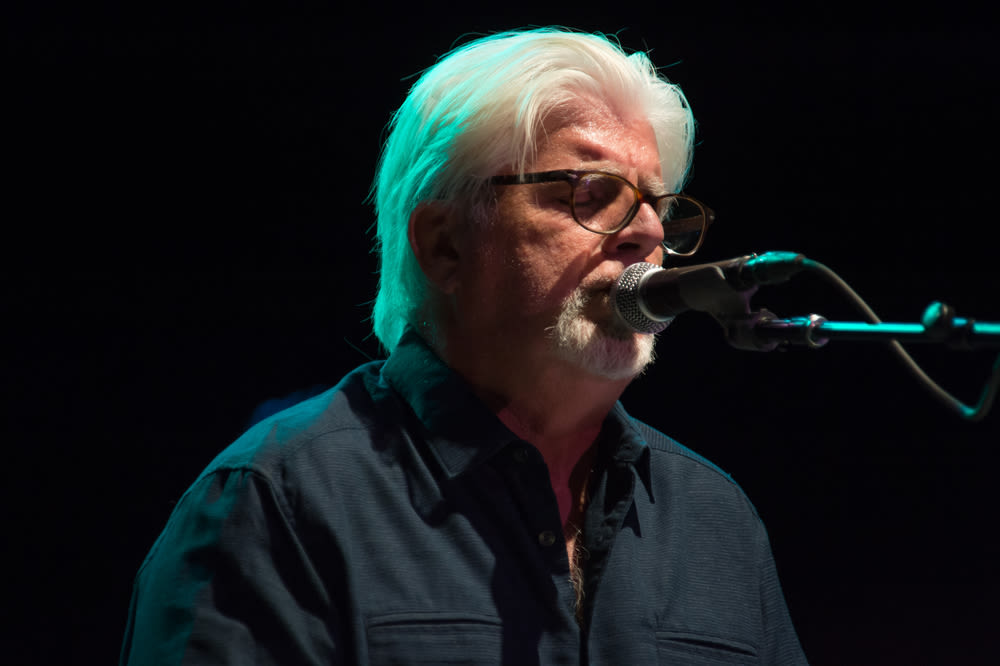
Michael McDonald. One might say the smoothest mother in music history.
Image: Randy Miramontez / Shutterstock.com
About 10 years ago , somebody showed me a YouTube video of Michael McDonald and Kenny Loggins writing a song that’s smoother and more polished than anything else on the airwaves.
That video—lovingly spoofing the writing of the Doobie Brothers' 1978 hit “What a Fool Believes”— was the first episode of a series called Yacht Rock . Premiering in 2005 on the Los Angeles-based television incubator Channel 101, Yacht Rock struck a chord with a generation of music nerds who attempt to compartmentalize and categorize the songs they heard as children. The term “yacht rock” itself grew out of the video series, permeating our culture today as much as the music had back in the late 1970s and early '80s.
But here’s the thing about terms that permeate our culture today: They get compromised and bastardized to fit other people’s cozy narratives, typically based on their own nostalgia. Google “yacht rock” and you’ll find articles from across the media spectrum attempting to define the term , failing hard because these writers just don’t get it. There’s even a new BBC series about yacht rock , and while it went into great detail providing context on the emergence of the musical style, it still turned out to be one person’s definition that included songs that were—as some of us might say— nyacht rock.
I’m here to set the record straight—or smooth. Yacht rock is music, primarily created between 1976 and ‘84, that can be characterized as smooth and melodic, and typically combines elements of jazz, rhythm and blues, and rock. You’ll hear very little acoustic guitar (get that “Horse With No Name” out of there) but a lot of Fender Rhodes electric piano. Lyrics don’t get in the way of the song’s usually high musicality (some of the finest Los Angeles session players, including members of the band Toto, play on many yacht rock tunes.) The lyrics may, however, speak about fools. The songs are as light and bubbly as champagne on the high seas, yet oddly complex and intellectual.
And just to hammer this home: Fleetwood Mac is not yacht rock. Daryl Hall & John Oates are 98 percent not yacht rock. Those folkie songs from America, Pure Prairie League, and Crosby, Stills & Nash? Nope. Rupert Holmes's "Escape (The Piña Colada Song)"? Too wordy and not musically interesting—not yacht rock. How about "Summer Breeze" by Seals & Crofts? A little too folky, but close.
I’m not affected by personal nostalgia (I was born in 1984, just as the yacht rock era was ending); instead, I’m an objective music lover who just so happens to have been researching yacht rock for the past several years. I know the men who coined the term “yacht rock” ( they have a great podcast and actually rate whether or not a song is yacht rock ), and they can back me up on this.
So whether you’re docked for the summer or about to set sail on an adventure, allow me to steer you in the right direction. I've crafted for you the definitive yacht rock playlist—below are a few highlights:
“What a Fool Believes,” The Doobie Brothers
I won’t get any nerdier, I’ll just say that this is the song that epitomizes yacht rock. It’s effortlessly melodic, bouncy, and bright, features a prominent Fender Rhodes electric piano, and includes an ultra-smooth vocal from Michael McDonald.
“Heart to Heart,” Kenny Loggins
Loggins never quite knew whether to be a jazzy folkie or a rocker, but in between those two phases were a couple yachty gems, including this cool breeze on a warm summer day, from the 1982 album High Adventure . Just listen to Loggins’s vocal—it’s butter.
“FM,” Steely Dan
Steely Dan brought a New York edge and a habit of wanting the best players on their records to Los Angeles. In time their sound morphed into the whitest smooth jazz on the planet, aka yacht rock. “FM,” from 1978, has both that snarky exterior and smooth center, but look up the band’s classic albums Aja and Gaucho for a number of yachty delights.
“Human Nature,” Michael Jackson
Once you get to know yacht rock, you can begin traveling into yacht soul—smooth songs from top studio players that lean just a little harder on the R&B. This classic song from the 1982 album Thriller was written and performed by Toto. Jackson provides the gorgeously breezy vocal.
“Rosanna,” Toto
Speaking of Toto, these guys were and still are awesome musicians. The 1982 hit “Rosanna” proves this in spades—the drum shuffle is iconic, the twists are remarkable, and the sound is smoother than a well-sanded skiff.
“Nothin’ You Can Do About It,” Airplay
Who is Airplay? A one-album band created by mega-producer David Foster and session guitarist Jay Graydon. These guys wrote Earth, Wind & Fire’s “After the Love Has Gone,” then this absolute stunner from 1980, a bouncy, giddy, and gentle pop classic.
“I Really Don’t Know Anymore,” Christopher Cross
Emerging out of nowhere with a Grammy-winning album in 1979, Cross is the perfect yacht rock figure, a normal-looking white dude who just so happens to sing like the wind on a summer’s evening. This song, from that debut album, is essential yacht rock with a noticeable background singer—of course, Michael McDonald.
If you want to catch McDonald and sing along to some of his yacht rock classics, he’s performing Friday night at Cynthia Woods Mitchell Pavilion in The Woodlands. Chaka Khan—who also has a few yacht rock tunes in her catalog—will open. Tickets start at $39.50; prepare accordingly with this summer yacht rock playlist on Spotify . You’re welcome.
Related Content

On The Town
What to Do and See This Summer
06/01/2021 By Chris Gray

Which Music Venues are Maintaining Covid-19 Restrictions?
03/15/2021 By Sydney Davis

Scary feet, scary feet, scary feet!
5 Things to Do in Houston This Weekend, Oct 23–25
10/23/2020 By Emma Schkloven

On the town

What to Do and See This Month, From Post Malone to Paw Patrol
03/02/2020 By Chris Gray


What Kind of Music is Yacht Rock? A Comprehensive Guide
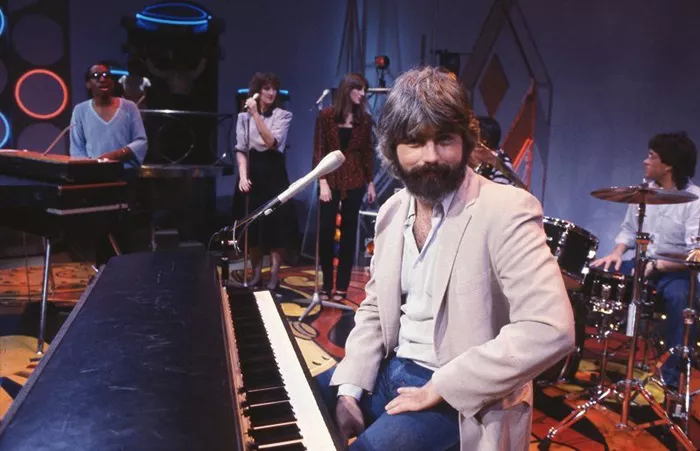
Yacht rock is a unique genre of music that emerged in the late 1970s and early 1980s, characterized by its smooth, mellow sound and polished production. Often associated with the affluent, leisurely lifestyle of sailing and luxury yachts, yacht rock has a distinctive blend of soft rock, R&B, and jazz influences. In this article, we will explore the origins, characteristics, notable artists, and cultural impact of yacht rock , delving deep into what makes this genre stand out in the vast landscape of music.
1. Origins of Yacht Rock
Yacht rock, also known as West Coast sound or adult-oriented rock (AOR), originated on the West Coast of the United States, particularly in Los Angeles. The term “yacht rock” was coined much later, in the early 2000s, by the creators of the satirical web series “Yacht Rock,” which humorously chronicled the lives of yacht rock musicians. The genre’s roots, however, can be traced back to the mid-1970s, when a group of musicians, producers, and songwriters began crafting a distinct sound that would become synonymous with the smooth, laid-back lifestyle of Southern California.
2. Characteristics of Yacht Rock
Smooth production and polished sound.
One of the defining features of yacht rock is its smooth production and polished sound. This genre is known for its high production values, with meticulously arranged compositions, lush harmonies, and an overall slick, professional feel. The use of state-of-the-art recording technology and skilled studio musicians helped create a sound that was both sophisticated and accessible.
Soft Rock and R&B Influences
Yacht rock seamlessly blends elements of soft rock and R&B, resulting in a mellow yet groovy sound. The soft rock influence is evident in the genre’s emphasis on melodic hooks, catchy choruses, and smooth vocal delivery. Meanwhile, the R&B influence can be heard in the rhythmic grooves, soulful harmonies, and occasional use of jazz-influenced chord progressions.
Jazz and Funk Elements
Many yacht rock songs incorporate jazz and funk elements, adding a layer of complexity and sophistication to the music. Jazz influences are often found in the use of extended chords, intricate harmonies, and improvisational solos. Funk elements, on the other hand, contribute to the genre’s rhythmic foundation, with syncopated bass lines, tight drum grooves, and occasional use of horn sections.
Lyrics and Themes
The lyrics of yacht rock songs typically revolve around themes of love, relationships, and leisure. There is often a sense of escapism in the lyrics, with references to sailing, the sea, and the carefree, affluent lifestyle associated with yachting. The tone is generally optimistic and relaxed, reflecting the laid-back vibe of the music.
3. Notable Artists and Bands
Steely Dan: Steely Dan, led by the duo of Donald Fagen and Walter Becker, is one of the most influential acts in the yacht rock genre. Known for their sophisticated songwriting, intricate arrangements, and jazz-infused sound, Steely Dan’s music epitomizes the polished, smooth aesthetic of yacht rock. Their albums “Aja” (1977) and “Gaucho” (1980) are considered masterpieces of the genre.
Toto: Toto is another iconic band associated with yacht rock. Formed by a group of highly skilled session musicians, Toto’s music features tight arrangements, virtuosic instrumentation, and a blend of rock, pop, and R&B influences. Hits like “Africa,” “Rosanna,” and “Hold the Line” showcase the band’s ability to craft catchy, polished songs that fit perfectly within the yacht rock mold.
Michael McDonald: Michael McDonald, both as a solo artist and as a member of the Doobie Brothers, is a key figure in the yacht rock genre. Known for his distinctive, soulful voice and smooth, melodic style, McDonald’s music embodies the laid-back, sophisticated vibe of yacht rock. His solo hits like “I Keep Forgettin’ (Every Time You’re Near)” and his work with the Doobie Brothers, including songs like “What a Fool Believes,” are quintessential examples of the genre.
Kenny Loggins: Kenny Loggins, often referred to as the “King of Yacht Rock,” has contributed numerous classics to the genre. Known for his smooth vocal delivery and knack for writing catchy, melodic songs, Loggins’ music perfectly captures the essence of yacht rock. Hits like “This Is It,” “ Heart to Heart,” and his collaborations with Michael McDonald, such as “What a Fool Believes,” are cornerstones of the genre.
Christopher Cross: Christopher Cross is another artist whose music is synonymous with yacht rock. His self-titled debut album, released in 1979, features smooth, melodic hits like “Sailing” and “Ride Like the Wind,” which epitomize the polished, laid-back sound of the genre. Cross’s music is characterized by its lush arrangements, smooth vocals, and breezy, melodic style.
4. Cultural Impact and Legacy
Revival and nostalgia.
In the early 2000s, yacht rock experienced a revival, largely thanks to the “Yacht Rock” web series created by J.D. Ryznar, Hunter D. Stair, and Lane Farnham. The series humorously chronicled the lives and music of yacht rock artists, introducing the genre to a new generation of listeners and solidifying the term “yacht rock” in popular culture. This resurgence of interest in yacht rock has led to a renewed appreciation for the genre, with yacht rock-themed parties, tribute bands, and even dedicated radio stations celebrating the smooth sounds of the late 1970s and early 1980s.
Influence on Contemporary Artists
The influence of yacht rock can be heard in the music of many contemporary artists. Bands like Vampire Weekend, Haim, and Phoenix have incorporated elements of yacht rock into their music, blending smooth melodies, polished production, and a laid-back, sophisticated vibe. This modern take on yacht rock has helped keep the genre relevant and influential in the contemporary music landscape.
Yacht Rock as a Lifestyle
Yacht rock is more than just a genre of music; it has become a lifestyle and cultural phenomenon. The genre’s association with luxury, leisure, and the carefree yachting lifestyle has made it a symbol of affluence and relaxation. This cultural association has been embraced by fans and artists alike, with yacht rock-themed events, fashion, and even beverages celebrating the smooth, laid-back aesthetic of the genre.
See Also: Everything You Want to Know About Psychedelic Rock Music: Revealed
Yacht rock is a distinctive and influential genre of music that emerged in the late 1970s and early 1980s, characterized by its smooth production, polished sound, and blend of soft rock, R&B, jazz, and funk elements. With its themes of love, leisure, and escapism, yacht rock has captured the imagination of listeners and become a symbol of the laid-back, affluent lifestyle associated with yachting. Notable artists like Steely Dan, Toto, Michael McDonald, Kenny Loggins, and Christopher Cross have contributed timeless classics to the genre, and the resurgence of interest in yacht rock in the early 2000s has introduced this smooth, sophisticated sound to a new generation of fans. Today, yacht rock continues to influence contemporary music and culture, embodying the spirit of smooth sailing and carefree relaxation.
- Decoding the Cultural and Religious Influence about the Beatles
- New Wave Music vs Punk Rock: What’s the Difference?
- Revealed! Emerging Themes in Late-1960s Rock Music
Patria, a passionate and seasoned music journalist with a keen ear for the latest tunes and a deep appreciation for the diverse world of music. With a career spanning over a decade, Patria has become a respected voice in the music industry, offering insightful commentary, in-depth reviews, and engaging features.
When Did Hard Rock Emerge as a Form of Rock and Roll Music?
6 styles of guitar playing in early hip-hop music revealed, related articles, how corruption and greed led to the downfall..., how did jazz/rock fusion influence popular music of..., unveiling the most common female names appear in..., who forced mtv to change its essentially all-white..., how did punk rock change music a deep..., in which decade did rock music emerge, what type of concerts is rock music known..., what is the characteristic rhythm pattern in rock..., who is in the ‘we will rock you’..., what does the expression “classical rock music” mean.

Dive into the enchanting world of music at OurMusicWorld.com, your ultimate destination for discovering new and diverse sounds. From emerging artists to timeless classics, embark on a musical journey that transcends genres and captivates your senses.
HOT SEARCH TERMS
How corruption and greed led to the downfall of rock music, 23rd annual bristol rhythm & roots reunion set for september 13-15, kenny chesney wraps up sun goes down tour with emotional farewell at gillette stadium, useful links.
- Privacy Policy
Copyright © 2023 ourmusicworld.com
Sail Away: The Oral History of ‘Yacht Rock’
By Drew Toal
This story was originally published on June 26, 2015
I n the late 1970s and early 1980s, musical artists like Kenny Loggins , Michael McDonald , Steely Dan , Toto , Hall and Oates , and dozens of others regularly popped up on each other’s records, creating a golden era of smooth-music collaboration.
And on June 26th, 2005, an internet phenomenon was born. In 12 short but memorable episodes — first via the the short-film series Channel 101 and then online — JD Ryznar, Hunter Stair, Dave Lyons, Lane Farnham and their friends redefined an era and coined a term for the sultry croonings of McDonald, Fagen, et al.: “yacht rock.”
As “Hollywood” Steve might say, these guys docked a fleet of remarkable hits. This is the story of Yacht Rock, told from stem to stern — a reimagining of a bygone soft-rock renaissance, courtesy of hipsters with fake mustaches, impeccable record collections and a love of smoothness. Long may it sail.
The Michigan Connection JD Ryznar (Director, “Michael McDonald”): I moved from Ann Arbor to L.A., and ended up making friends with all these other guys from Michigan, like “Hollywood” Steve Huey, Hunter Stair, and David Lyons. Pretty much every weekend I’d have “Chinese Thanksgiving” at my apartment — we’d eat BBQ chicken and burgers, drink beer and listen to records of what I called “yacht rock.” You know, like Michael McDonald is singing background vocals and like there’s guys on boats on the covers; it feels like you’re on a yacht listening to it. And the guys were like, oh, we know this music.
Dave Lyons (“Koko”): You know how, in the Seventies, these big bands started playing arena rock? We liked the idea of these smooth bands playing “Marina Rock.” I thought it was a better name.
“Hollywood” Steve Huey (“Hollywood Steve”): What I mostly remember is JD playing Journey records all the time. He was so into Journey that he had photocopied a photo of Steve Perry and pasted it onto his liquid soap dispenser. He wrote “Steve Perry Soap: Clean as all fuck” on it.
Editor’s picks
The 100 best tv episodes of all time, the 250 greatest guitarists of all time, the 500 greatest albums of all time, 25 most influential creators of 2024.
Lane Farnham (editor, “Jimmy Messina”): JD and I had talked about Journey for a year before we did Yacht Rock. In the third episode, that whole “you need to fly like a pilot” bit? Those are direct lines from Steve Perry in this crazy documentary we found. He’s coked to the gills, in the Eighties, just blabbering about who knows what. We got a kick out of that stuff.
Sail Away: The Oral History of ‘Yacht Rock’ , Page 1 of 12
Doechii Is Bringing 'Alligator Bites Never Heal' Tour to a Swamp Near You
- By Mankaprr Conteh
The Postal Service Will Go on Indefinite Hiatus After Wrapping 'Give Up' 20th Anniversary Tour
- By Jon Blistein
Mark Hoppus to Release Tell-All Memoir: 'Shit Gets Dark'
- Booked for a Book
- By Tomás Mier
'Stereophonic' Extends Broadway Run for Final Time, Adds New Cast Members
- Let the Music Play
- By Kalia Richardson
Perry Farrell Apologizes After Jane's Addiction Cancel Tour: 'My Breaking Point Resulted in Inexcusable Behavior'
- Apology Tour
Most Popular
Jane's addiction concert ends abruptly after perry farrell throws a punch at dave navarro, is forced offstage by crew, "it's a cult, and walt's the messiah": meet the couple who sued disney over secretive club 33, jason kelce may have accidentally revealed taylor swift & travis kelce made a massive relationship step, michigan judge removed from bench after declaring "i’m a new racist" in leaked audio, you might also like, emmys viewership jumps by 54% to 6.9 million viewers after record-low ceremony in january, the 14 best baggy jeans and how to wear them now , the best yoga mats for any practice, according to instructors, emmys 2024 delivered historic wins — including ‘shogun’, shannon sharpe defeats brett favre in defamation suit appeal.
Rolling Stone is a part of Penske Media Corporation. © 2024 Rolling Stone, LLC. All rights reserved.
- Newsletters
- Account Activating this button will toggle the display of additional content Account Sign out
The Bridge: Yacht Or Nyacht?
Chris Molanphy talks to the coiners of Yacht Rock about how they define the genre they invented.
Listen & Subscribe
Choose your preferred player:
- Apple Podcasts
- Amazon Music
Please enable javascript to get your Slate Plus feeds.
Get Your Slate Plus Podcast
If you can't access your feeds, please contact customer support.
Thanks! Check your phone for a link to finish setting up your feed.
Please enter a 10-digit phone number.
Listen on your phone: RECOMMENDED
Enter your phone number and we'll text you a link to set up the podcast in your app:
We'll only text you about setting up this podcast, no spam.
Listen on your computer:
Apple Podcasts will only work on MacOS operating systems since Catalina . We do not support Android apps on desktop at this time.
Listen on your device: RECOMMENDED
These links will only work if you're on the device you listen to podcasts on.
Set up manually:
How does this work?
We're sorry, but something went wrong while fetching your podcast feeds. Please contact us at [email protected] for help.
Episode Notes
First, we have a few announcements about the future of Hit Parade —and it’s good news for both Slate Plus members and non-Plus listeners. While the economic challenges of COVID-19 certainly haven’t abated, Hit Parade has attracted enough new Plus members to allow us to take some episodes out from behind Slate’s paywall starting in September.
Starting next month, full-length Hit Parade episodes will debut in the middle of the month, not the end (our next full-length episode drops on Friday, September 18). If you are a Plus member, you’ll hear the whole show all at once, the day it drops. If you are not a Plus member, you will receive the first half of the episode mid-month, with ads, and you’ll have to wait a couple of weeks to hear the second half of the show, at month’s end. Finally, Hit Parade—“The Bridge” episodes will remain Plus-only.
Again, thanks to many of you who signed up for Slate Plus just to hear Hit Parade, and of course the thousands of longtime Plus members. We plan to keep giving you the bonus content you expect. And a hearty welcome back to non-Plus listeners—we hope you’ll consider joining Slate Plus in the future, but you can also support Hit Parade by spreading the word about our episodes.
In this mini-episode of Hit Parade, host Chris Molanphy is joined by J.D. Ryznar, “Hollywood” Steve Huey, and Dave Lyons, creators of the web series Yacht Rock and follow-up podcast Beyond Yacht Rock. Not only did they invent the very term that inspired the latest episode of Hit Parade , they have kept the fire alive by refining what the genre means.
The Yacht Rockers and Chris discuss the enduring legacy of the term they created—from why the name stuck, to how it was perceived by the various artists whose music it defined. (Boz Scaggs is reportedly not happy.) They also reveal songs they’d re-rate against their signature Yachtski scale , songs commonly tagged Yacht that are actually “ Nyacht ,” and how they curate the boundaries of the genre . They even offer a Hit Parade–exclusive announcement about what’s next for their smooth creation.
Finally, Chris quizzes a Slate Plus listener with some music trivia, gives her a chance to turn the tables on him, and previews next month’s full-length episode.
Podcast production by Asha Saluja.
About the Show
Chris Molanphy, a pop-chart analyst and author of Slate’s “Why Is This Song No. 1?” series, tells tales from a half-century of chart history. Through storytelling, trivia, and song snippets, Chris dissects how that song you love—or hate—dominated the airwaves, made its way to the top of the charts, and shaped your memories forever.
Chris Molanphy is a feature writer and critic who writes widely about music and the pop charts.

- Latest News
Best Songs For The Fall: 20 Autumn Classics
Rediscover the beach boys’ ‘surfer girl’, dj shadow’s ‘endtroducing’ explained, ‘top priority’: why you need to hear this rory gallagher album, ‘laughing stock’: the timeless appeal of talk talk’s final album, ‘that’s where it’s at’: the last hit of sam cooke’s life, george harrison – the first beatle on american soil, aerosmith celebrate ‘pump’ anniversary with music and merch, watch the video for queen’s ‘the night comes down’, andrea bocelli’s ‘il mare calmo della sera’ set to make vinyl debut, little big town announce ‘the christmas record’, mumford and sons announce new compilation ‘gentlemen of the road’, tito jackson, jackson 5 singer, dies aged 70, the weeknd is back and ‘dancing in the flames’, yacht rock: a boatload of not-so-guilty pleasures.
The idea of yacht rock conjures up a particular lifestyle, but beneath the surface lies a treasure trove of sophisticated hits that continue to resonate.
Published on

Even some of those who signed up to the subgenre subtleties of what became known as yacht rock may consider it to be a time-locked phenomenon. Certainly, its chief protagonists first cast their subtle soft-rock sophistication in the 70s and 80s, but its melodic echoes can still be heard all these decades later.
Perhaps unusually, the phrase itself was coined as a kind of lighthearted castigation of the adult-oriented rock that seemed to exude privileged opulence: of days in expensive recording studios followed by hedonistic trips on private yachts, typically around southern California. The web TV series of the mid-00s that parodied the lifestyle was even named Yacht Rock ; one of the biggest hits of a chief exponent of the sound, Christopher Cross, was, of course, “Sailing.”
The recent resurgence in the long career of another staple, Michael McDonald, is testament to the durability of a style that was, after all, grounded in musicianship and melodicism of the highest order. Nearly 40 years after he and fellow yacht rock principle Kenny Loggins co-wrote and performed the Grammy-winning “This Is It,” the pair were afforded the high praise of a collaboration with acclaimed modern-day jazz-funk bassist Thundercat, on his track “Show You The Way.” Ahead of that, McDonald’s guest appearance with Thundercat at the 2017 Coachella Festival was a viral sensation.

Setting sail
Like other subgenres that grew from an existing style, just as Americana did from country, the starting point of yacht rock is a matter of endless debate. Some hear it in the early 70s soft rock of Bread and hits such as “Guitar Man,” or in Seals & Crofts, the duo of the same period whose 1973 US Top 10 hit “Diamond Girl” and its follow-up, “We May Never Pass This Way (Again)” are pure, classy, elegantly played and harmonised yacht rock.
As the 70s progressed and album rock radio became an ever more powerful medium in the US music business, studio production grew along with the budgets to fund it. High-fidelity citadels such as Sunset Sound and Ocean Way were the industry epitome of the Los Angeles hedonism of the day, and played host to many of the artists we celebrate here. Perhaps it was the combination of financial independence and the sun-kissed surroundings that gave rise to the phenomenon, but this was music that not only sounded opulent – it made you feel somehow more urbane just by listening to it.
California singer-songwriter Stephen Bishop was another of the artists who would retrospectively become part of what we might call the yachting club. Indeed, it’s important to point out that “yacht rock” was not a term that existed at the time the music was being made. Bishop’s acclaimed 1976 debut album, Careless , was a masterclass in well-crafted pop music for those no longer hanging on the words of every chart pin-up. Its tender opening ballad, “On And On,” which peaked just outside the mainstream US Top 10 and reached No.2 on the Easy Listening chart, is a prime example.
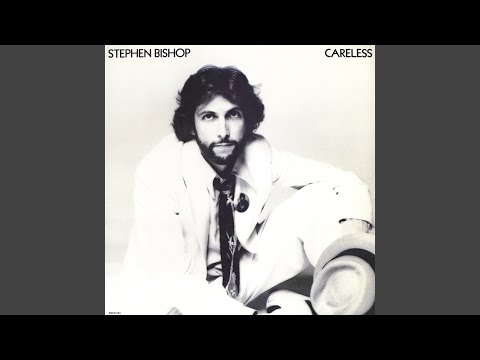
Making waves
McDonald, for his part, might be afforded the questionable honor of the Yacht Rock theme tune with his solo hit “Sweet Freedom,” but had earlier been a key part of the unconscious movement as a member of the Doobie Brothers. The double Grammy-winning landmark “What A Fool Believes,” again written by McDonald with Loggins, stands tall in this hall of fame. Similarly, Toto, another band of master studio craftsmen whose critical and commercial stock has risen again in recent times, stood for all the principles of yacht rock with tracks such as “99” and the undying “Africa.”

That 1982 soft-rock calling card came from the Toto IV album, which was, indeed, recorded in part at Sunset Sound and Ocean Way. But Steely Dan , one of the bands to prove that yacht rock could come from other parts of the US where the attendant lifestyle was less practical, made perhaps their biggest contribution to the subgenre after Walter Becker and Donald Fagen moved back to their native East Coast.
After their initial incarnation as a live band, Steely Dan were well established in their peerless cocoon of pristine studio production when they moved back east. That was after recording 1977’s superb Aja , the album that announced their ever-greater exploration of jazz influences. Fans and critics of the band both used the same word about them, perfectionism: some as a compliment, others as an accusation. But 1980’s equally impressive Gaucho was their yacht rock masterpiece.
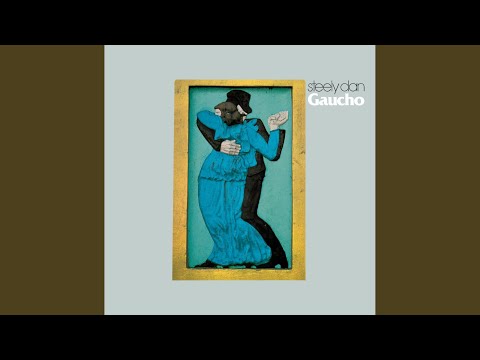
Ripple effect
In such a subjective phrase, other artists seen by some as yacht rock representatives, such as Daryl Hall & John Oates, Journey, the Eagles, or even Canada’s Gordon Lightfoot, are thought by others to be creatively or geographically inappropriate, or just too mainstream to break out of the overreaching AOR terminology.
But a significant number of other artists, whose names are less quoted today, had their finest hours during the pop landscape of the late 70s and early 80s that we’ve been visiting here. Amy Holland won a Best New Artist Grammy nomination in 1981 helped by “How Do I Survive,” written by McDonald, whose wife she became soon afterwards. Robbie Dupree, a Brooklyn boy by birth, also epitomized the style with his 1980 US hit “Steal Away.” Then, in 1982, America, the band known for their definitive harmonic rock of a decade earlier, mounted a chart return with the suitably melodic “You Can Do Magic.”
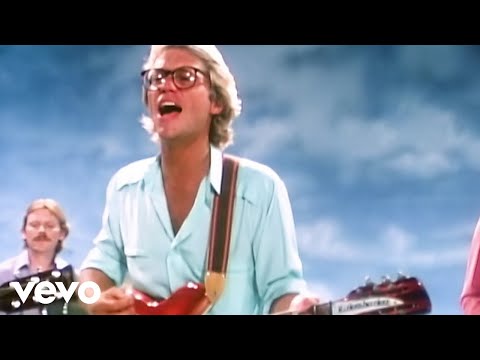
The final word goes to Michael McDonald, the unwitting co-founder of the yacht rock sound. When the aforementioned mockumentary series was at the height of its popularity, he was asked if he had ever owned a yacht, and replied (perhaps disappointingly) in the negative. But, he added, “I thought Yacht Rock was hilarious. And uncannily, you know, those things always have a little bit of truth to them.
“It’s kind of like when you get a letter from a stalker who’s never met you. They somehow hit on something, and you have to admit they’re pretty intuitive.”
Listen to the Soft Rock Forever playlist for more yacht rock classics .
October 28, 2019 at 8:42 pm
if you dig this sound, you gotta check out Yachty by Nature the best yacht rock band on the West Coast. They play it all live without the backing tracks (yuck) that some bands do. They just got voted #1 Best Live Cover Band in Orange County and spreading yacht rock all over the country. Dive in!!! #yachtrock https://yachtybynature.com
October 28, 2019 at 8:44 pm
BTW, great article!!!!! Well written and thoughtfully addressed the idea of Nyacht Rock artists to the purists following the genre!
' . esc_html__( 'Leave a Reply', 'zox-news' ) . '
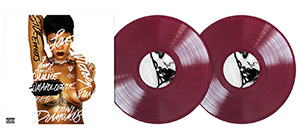
A beginner’s guide to yacht rock in five essential albums
Yacht rock, soft rock – call it what you will. Here are five brilliant albums that define the genre in all its bearded, Hawaiian shirted glory
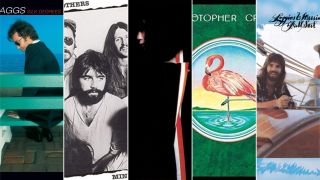
Was there really ever a genre called yacht rock ? Prior to the 2005 online comedy series of the same name, what we now know of as yacht rock was simply soft rock, largely of the 1970s variety, but occasionally dipping into the 80s as well. It was music that was smooth, slick and did little to challenge the listener in the way that heavy metal or punk rock would. Yet sold in the multi-millions, made superstars of its creators, and was beloved by industry professionals for the stellar musicianship and high production values. And above all, it was detested by the critics.
Today, yacht rock is the ultimate guilty pleasure genre. Its patron saints - almost exclusively men, generally bearded – never appeared on posters that graced adolescents’ walls. Yet bands and artists such as The Doobie Brothers , Loggins & Messina and Christopher Cross made sweet, soulful music featuring some of the finest musicians of the era and sounding so, so perfect in the process.
Unlike prog, hair metal or krautrock, the boundaries of what constitutes yacht rock are blurred. There’s little to link the jazzy noodlings of Steely Dan , Boz Scaggs’ smooth pop and the later, 80s pop-rock of Hall & Oates beyond the fact that the various members of Toto appeared on many of these albums, making them kind of a yacht rock mafia.
Yacht rock, soft rock, call it what you will: the men who made it are laughing all the way to the bank in their Hawaiian shirts and well-sculpted facial hair while the rest of us celebrate their music in all its frictionless glory. Critics be damned, these are the five essential yacht rock albums for those who want to plunge into the genre.

Loggins & Messina - Full Sail (1973)
Kenny Loggins was a boyish-looking yet handsomely bearded fellow with a penchant for country-esque ballads. Jim Messina had been in Buffalo Springfield and country rockers Poco . The pair teamed up to record some of Loggins’ material and ended up becoming an unlikely success story, notching up hits with 1971 single The House At Pooh Corner and the following year’s Your Mama Don’t Dance , later covered by hair metallers Poison.
But 1973’s Full Sail was their apex. Featuring the ultimate yacht rock album cover (two men, one yacht), the album itself contains everything from the calypso frivolity of Lahaina , and the smooth jazz of Travellin’ Blues to the joyously upbeat My Music and hit ballad Watching The River Run . This is yacht rock’s ground zero. Boys, what did you unleash?
Boz Scaggs - Silk Degrees (1976)
An early member of the Steve Miller Band , guitarist and vocalist Boz Scaggs’ solo career had begun 1969. But nothing had clicked with the record buying public until he hooked up with David Paich, Jeff Porcaro and David Hungate, all of whom were on the verge of forming Toto , and recorded his seventh solo album, Silk Degrees . A masterful mix of smooth pop and slick ballads, it spawned hits in the shape of It’s Over , Lowdown , We’re All Alone (made famous by Rita Coolidge) and the pulsating Lido Shuffle , a bona fide dancefloor filler.
Classic Rock Newsletter
Sign up below to get the latest from Classic Rock, plus exclusive special offers, direct to your inbox!
Steely Dan - Aja (1977)
Arguments rage as to whether these protagonists of achingly cool and clever jazz rock belong in the yacht rock genre, but hey, if the people who made the Yacht Rock online series say the are, who are we to argue?
Their sixth album, Aja , saw Walter Becker and Donald Fagan stretching out into longer form pieces of music that were funkier and jazzier than they’d ever been before, capping it off with one of the most pristine production jobs ever – such were their levels of perfectionism that six crack session guitarists tried and failed to lay down the guitar solo on Peg to their satisfaction (it was the seventh, Jay Graydon, who nailed it). Bonus yacht rock points: auxiliary Dan backing vocalist/keyboard player Michael McDonald was also a member of The Doobie Brothers.
The Doobie Brothers – Minute By Minute (1978)
In 1974, Steely Dan guitarist Jeff ‘Skunk’ Baxter moved across to hugely successful blues rockers The Doobie Brothers on a free transfer. The following year, he suggested recruiting Dan backing singer/pianist Michael McDonald as a replacement for the Doobies’ ailing guitarist/vocalist Tom Johnstone.
With his blue-eyed soul croon and knack for writing uptempo R&B-infused songs, McDonald helped nudge the band towards smoother waters. By 1978’s Minute By Minute , they had fully transformed from moustachioed chooglers into yacht rock kingpins. The album’s blend of soft rock and R&B reached its apotheosis on the majestic What A Fool Believes – co-written with Kenny Loggins, naturally – which ultimately helped turn McDonald into a bigger star than the band. For the record, the singer’s 1986 Sweet Freedom compilation is also yacht rock gold.
Christopher Cross - Christopher Cross (1979)
When Christopher Cross released his self-titled debut album in December 1979, no-one knew who he was. A year later, he’d racked up four Top 20 hits and swept the boards at the Grammy Awards.
It’s not hard to see why: Cross’ spectacular voice was matched by the brilliance of his songs. Everyone knows Ride Like The Wind , featuring that Michael McDonald fella on backing vocals, but it was the mellower Sailing that hit the No. 1 spot ( Ride… only managed No. 2). A year later Cross’ theme to the movie Arthur won him and co-writer Burt Bacharach an Oscar.
Cross was no slouch as a musician either: Steely Dan had asked him to play on their albums and he even filled in for a sick Ritchie Blackmore at a Deep Purple US show back in 1970.
Writer and broadcaster Jerry Ewing is the Editor of Prog Magazine which he founded for Future Publishing in 2009. He grew up in Sydney and began his writing career in London for Metal Forces magazine in 1989. He has since written for Metal Hammer, Maxim, Vox, Stuff and Bizarre magazines, among others. He created and edited Classic Rock Magazine for Dennis Publishing in 1998 and is the author of a variety of books on both music and sport, including Wonderous Stories; A Journey Through The Landscape Of Progressive Rock.
“Get rid of the guitar player and get somebody else. Nobody cares.” Kiss' Gene Simmons urges Morrissey to reunite The Smiths without Johnny Marr, but there's a plot twist
Watch thrash legends Testament perform live with 11-year-old on guitar
“Our hearts are broken.” Jane's Addiction cancel US tour and announce hiatus, with bandmates claiming that Perry Farrell's “mental health difficulties” have left them them “no alternative”, for their own safety
Most Popular

COMMENTS
Yacht rock (originally known as the West Coast sound[4][5] or adult-oriented rock[6]) is a broad music style and aesthetic [7] commonly associated with soft rock, [8] one of the most commercially successful genres from the mid-1970s to the mid-1980s.
Yacht rock was one of the most commercially successful genres to emerge from the '70s and yet has managed to evade concise definition since its inception. For many listeners, it boils down to a...
But if a major player in the music business wants to do that and call it yacht rock, we need to take a step back and consider what is and isn’t yacht.
What is the Meaning of “What You Won’t Do for Love”? Caldwell’s lyrics on “What You Don’t For Love” touch on many aspects surrounding the search for that all-too elusive connection.
Yacht rock is music, primarily created between 1976 and ‘84, that can be characterized as smooth and melodic, and typically combines elements of jazz, rhythm and blues, and rock.
Yacht rock is a distinctive and influential genre of music that emerged in the late 1970s and early 1980s, characterized by its smooth production, polished sound, and blend of soft rock, R&B, jazz, and funk elements.
What Is 'Yacht Rock'? Music. Sail Away: The Oral History of ‘Yacht Rock’. Complete behind-the-scenes story of the most popular history-of-smooth-music series ever made. By Drew Toal....
The Yacht Rockers and Chris discuss the enduring legacy of the term they created—from why the name stuck, to how it was perceived by the various artists whose music it defined.
The idea of yacht rock conjures up a particular lifestyle, but beneath the surface lies a trove of sophisticated hits that still resonate.
Yacht rock, soft rock, call it what you will: the men who made it are laughing all the way to the bank in their Hawaiian shirts and well-sculpted facial hair while the rest of us celebrate their music in all its frictionless glory.